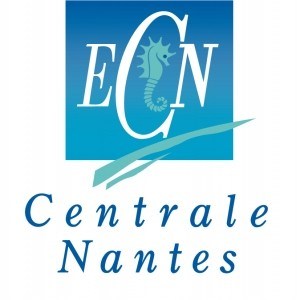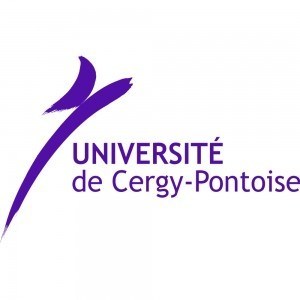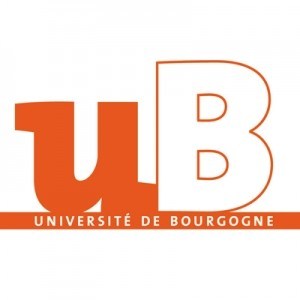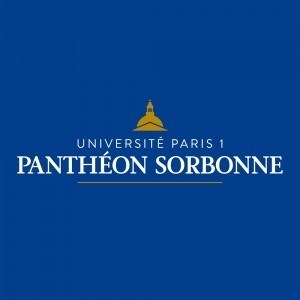Photos of university
The Computer Science program at École normale supérieure de Lyon offers a comprehensive and rigorous curriculum designed to prepare students for advanced careers in the rapidly evolving field of computing. This program aims to develop a deep understanding of fundamental concepts as well as practical skills necessary for innovation and research in computer science. Throughout the course, students engage with core topics such as algorithms, programming languages, software engineering, systems architecture, and databases, ensuring a solid foundation in both theoretical and applied aspects of the discipline.
In addition to foundational courses, the program emphasizes interdisciplinary approaches, integrating elements of mathematics, logic, and cognitive sciences to foster a holistic understanding that aligns with the university's emphasis on scientific excellence. Students have the opportunity to participate in cutting-edge research projects, internships, and collaborations with industry partners, which enhance their practical experience and prepare them for diverse careers within academia, technology companies, startups, or research institutions.
The curriculum is designed to be flexible, allowing students to tailor their studies according to their interests, whether in artificial intelligence, machine learning, cybersecurity, data science, or software development. École normale supérieure de Lyon’s strong academic environment, equipped with modern laboratories and research facilities, supports innovative learning and discovery. The program also encourages international exchange and collaboration, enabling students to gain global perspectives and establish professional networks worldwide.
By the end of the program, graduates are equipped with critical thinking, problem-solving skills, and technical expertise that meet the highest standards of the industry. They are prepared to contribute to technological advancements and digital transformation across various sectors. The university’s distinguished faculty, many of whom are leading researchers in the field, ensure that students are mentored with dedication and are exposed to the latest developments in computer science. Overall, the Computer Science program at École normale supérieure de Lyon offers an exceptional education that combines academic excellence, practical skills, and innovative research, positioning graduates as leaders in the digital age.
The following courses are offered in the first semester of M1:
Mandatory courses (3 ECTS):
English
Integrated project 1
In addition to the mandatory courses, students should validate at least 4 courses (6 ECTS each):
Performance Evaluation and Networks (PEN)
Compilers and Program Analysis (CPA)
Information Theory (IT)
Parallel and Distributed Algorithms and Programs (PDAP)
Optimisation and Approximation (OA)
The validation of two M1 Research Schools is mandatory, and brings 3 ECTS
The following courses are offered in the second semester of M1:
In addition to the mandatory courses (English and Integrated project 1), students should validate at least 4 courses (3 ECTS each):
Cryptography and Security (CS)
Computer Algebra (CA)
Semantics and Verification (SV)
Distributed Systems (DS)
Programs and Proofs (PP)
Data Bases and Data Mining (DBDM)
Computational Complexity (CC)
Computational Geometry and Digital Images (CGDI)
An internship of 11 weeks must be validated, and brings 9 ECTS. The internship should be a research internship, either abroad or in a french company.
Master 2
Advanced Cryptographic Primitives
Resilient and Energy-Aware Scheduling Algorithms
Network Algorithms for Molecular Biology
Quantum Information and Computation
Tilings: between Dynamical Systems and Computability
Algorithmic Number Theory
Computer Science and Privacy
Arithmetic Circuit Complexity
Distributed Computing: Models and Challenges
Program Analysis, Safety Program Verification
Rule-based Modeling of Biochemical Systems
Coinductive Methods in Computer Science
Implicit Computational Complexity
Finite Automata in Number Theory
Complex Networks
Signal Processing and Networks
Probabilistic Methods, with Applications to Graphs
Advanced Compilers: Loop Transformations and High-Level Synthesis
Fundamental Algorithms in Real Algebraic Geometry
Admission is based on the excellency of records, and an interview may be requested. The decision is taken by the admission jury. The only criteria are the relevency of the application, the quality of the academic curriculum, the academic records, and the personal project of the applicant.
Level of English required: B2 (Common European Framework of Reference for Languages classification)
List of documents:
- Academic transcript - in english or french
- A certified copy of diploma
- A copy of your ID card / passport
- A letter of motivation
- CV
- A filled-in table showing your linguistic skills (can be found on the University website)
- French language certificate (DALF, DELF, TCF - min level A1) and English language certificate (IELTS, TOEFL)
The CS department of ENS de Lyon encourages International students to apply. Stipends are proposed to International students, based on academic records.
For all students:
- ENS de Lyon Ampère scholarship
- ENS de Lyon – LIP scholarship
- ENS de Lyon – INRIA scholarship
- Labex MILYON scholarship
For «normalien» students:
- Salary for students from an EU member state
- Excellence grants for students from any other country
Call for application 2017-2018: opening planned in november 2016.
You will need the following documents to apply:
- Application form
- Referee evaluation form
- List of documents required to complete the application
The Computer Science program at École normale supérieure de Lyon is designed to provide students with a comprehensive education in the fundamental principles and practical applications of computer science. The curriculum emphasizes both theoretical foundations and hands-on experience, preparing graduates for careers in research, industry, or academia. Students explore a wide range of topics, including algorithms, data structures, programming languages, software engineering, databases, artificial intelligence, machine learning, cybersecurity, and computer architecture. The program also encourages interdisciplinary approaches, allowing students to integrate knowledge from mathematics, physics, and other sciences to address complex computational problems.
The program typically spans three years for undergraduate studies, leading to a Bachelor's degree, with options to continue to master's and doctoral levels. At the master's level, students have opportunities to specialize in areas such as data science, cybersecurity, or software engineering, often engaging in collaborative projects with industry partners and participating in internships to gain practical experience. The curriculum balances coursework, project work, and research components, fostering critical thinking, problem-solving skills, and innovation.
École normale supérieure de Lyon emphasizes research-led education, with faculty members actively involved in cutting-edge projects in artificial intelligence, machine learning, algorithms, and computational sciences. Students are encouraged to participate in seminars, workshops, and conferences that expose them to the latest developments in computer science. The program also offers various international exchange opportunities, allowing students to study abroad and gain global perspectives in technology and research.
Graduates from this program are well-equipped to pursue careers in software development, data analysis, research, and higher academia. Many alumni go on to work in major technology firms, research institutes, or pursue doctoral studies. The university's strong network of industry contacts and research collaborations enhances employment prospects and provides students with valuable professional connections.
The educational environment at École normale supérieure de Lyon is rich in resources, including modern laboratories, advanced computing facilities, and a vibrant academic community. The program fosters a collaborative atmosphere, encouraging student engagement, innovation, and lifelong learning. Overall, the computer science program aims to produce highly qualified professionals capable of contributing to technological advancements and addressing societal challenges through computing sciences.








